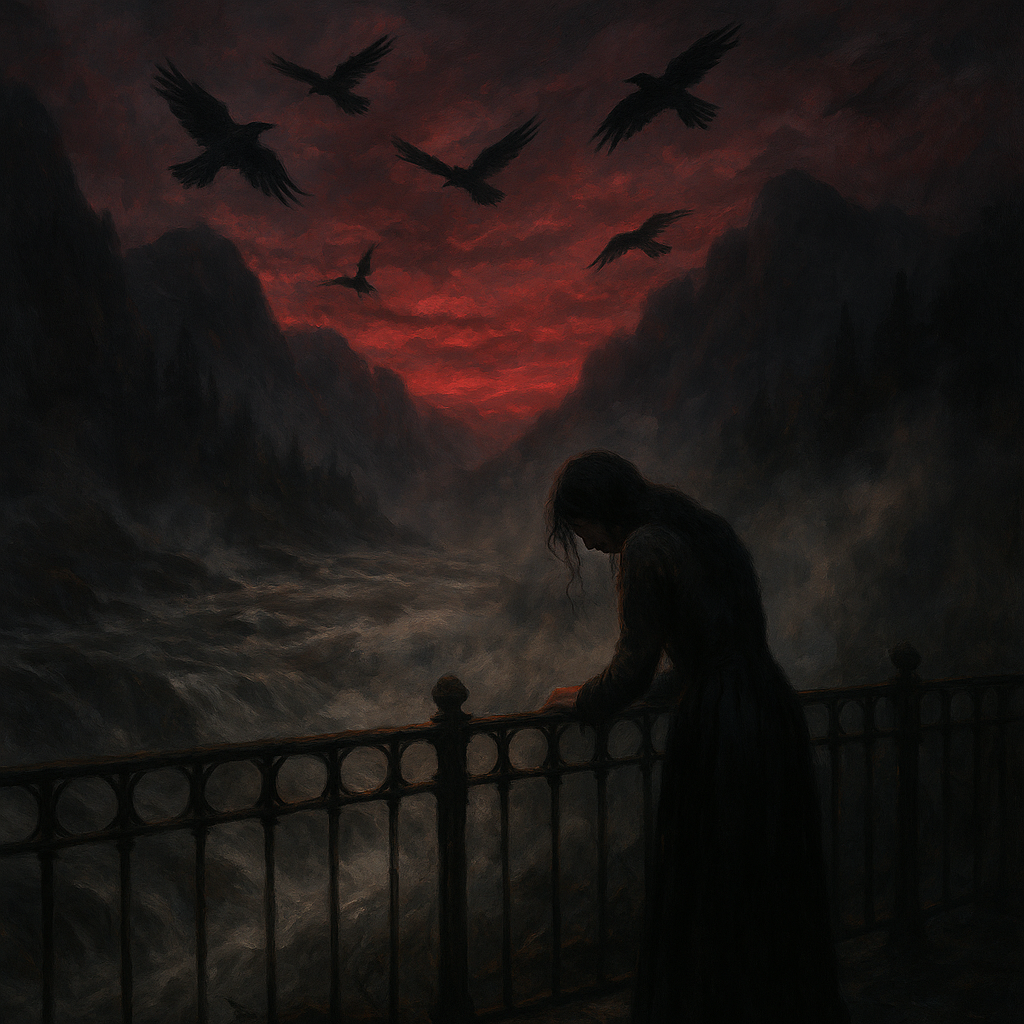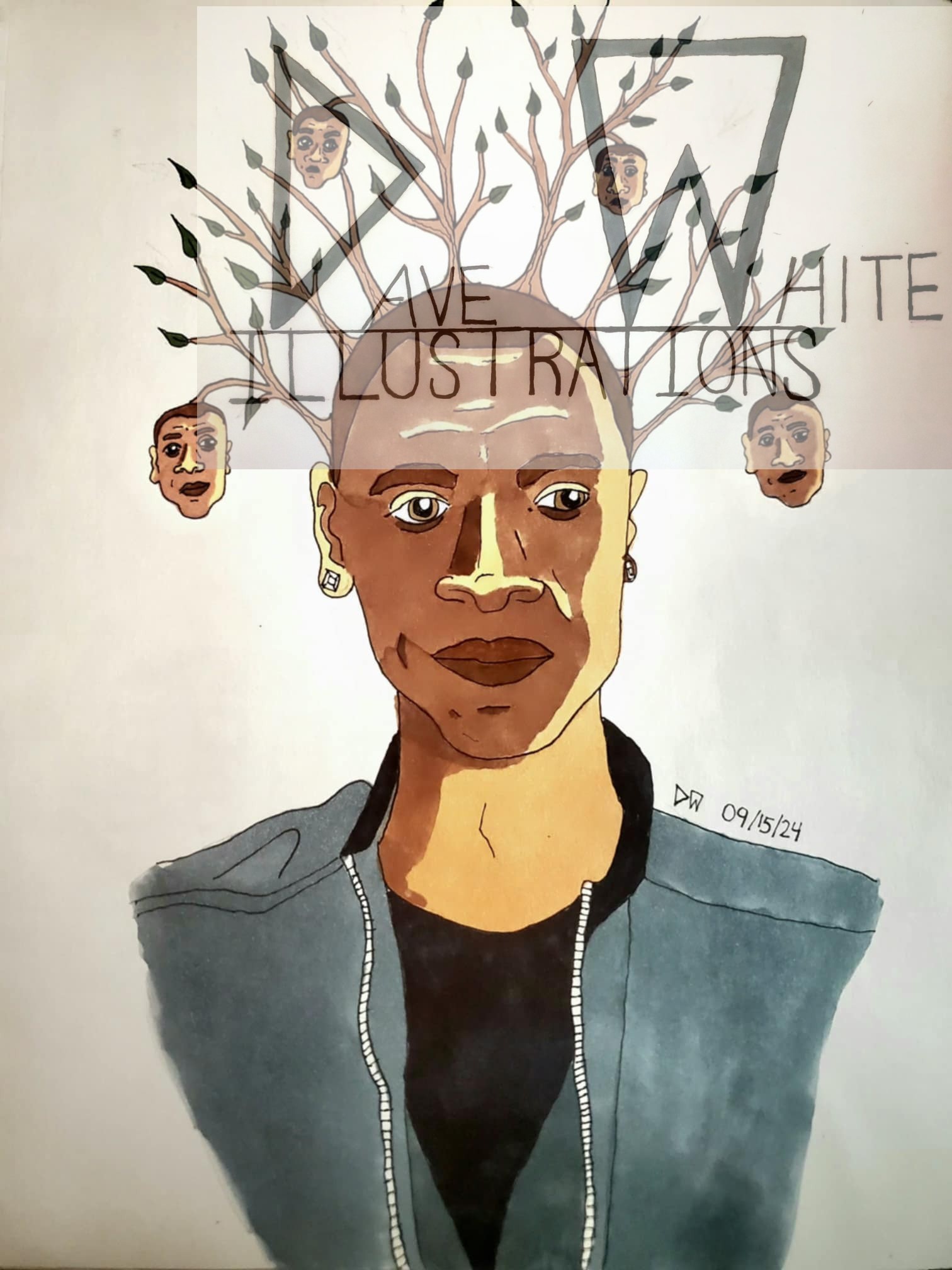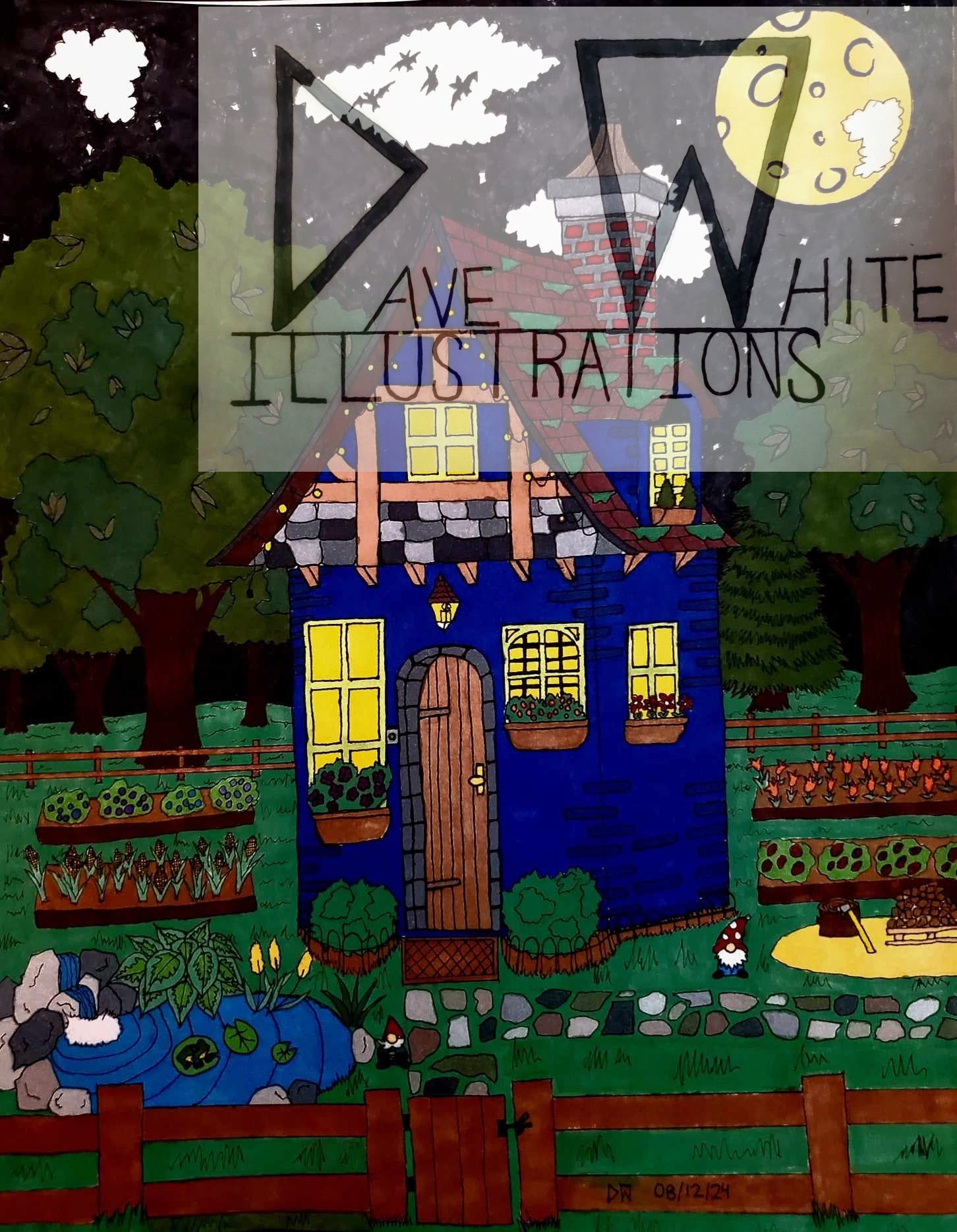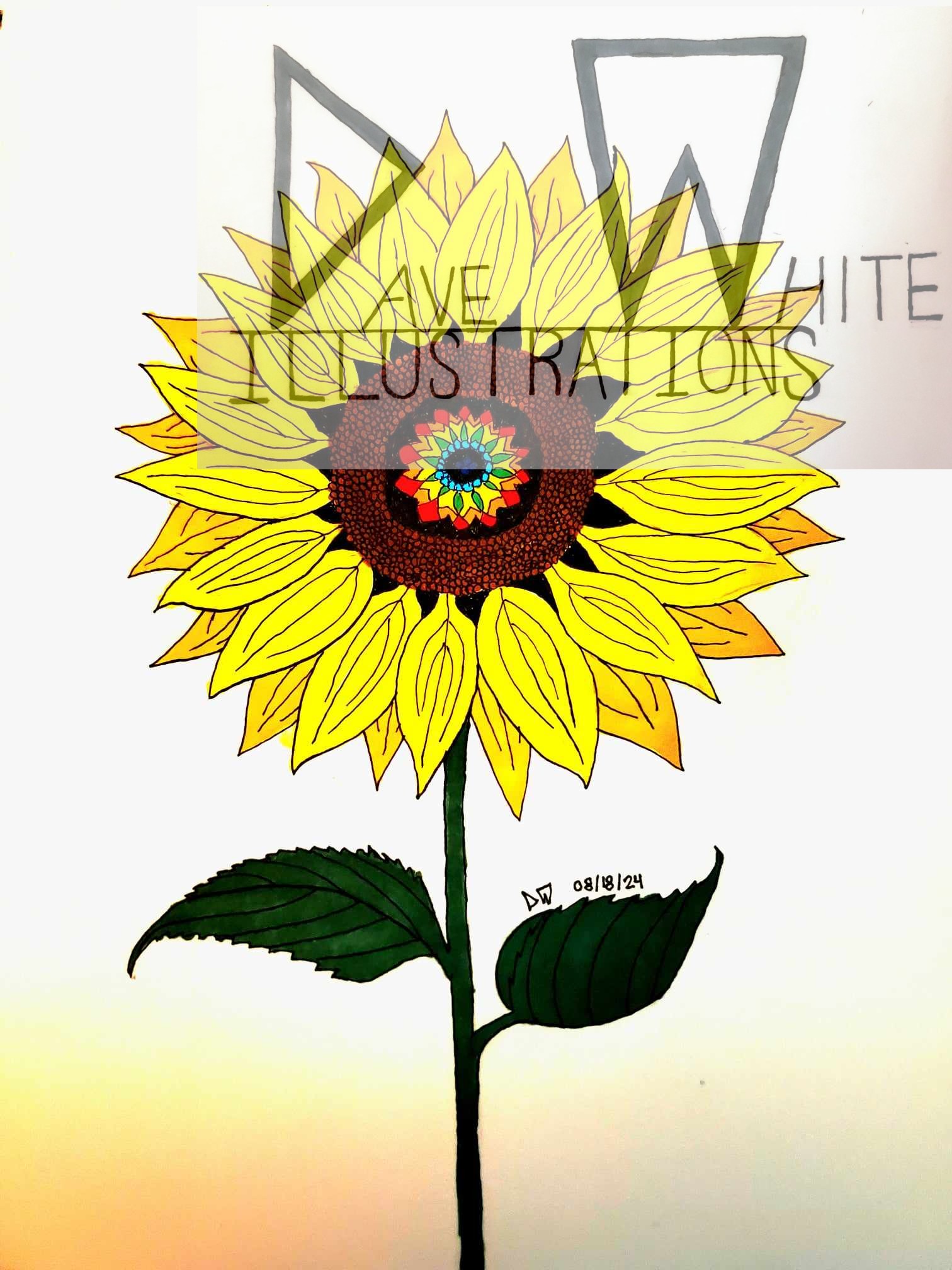The evening bled into itself. Clouds bruised violet and crimson drifted low, their torn edges sagging like wounded flesh across the sky. The sun, pale and reluctant, poured its final light into the river, staining the water with blood and fire. The current roared, restless, never ceasing, breaking itself against stone with the violence of a world that knows no mercy. Mist climbed upward, wrapping the railing in cold fingers, while the mountains loomed like unmoving judges—silent, austere, eternal.
Above the valley, ravens circled. Their wings beat shadows into the dim air, and their cries fell like knives, carving the silence open. The birds wheeled and dipped, unbothered by grief, unbothered by consequence. They were witnesses, not companions.
On a weathered bench by the river’s edge sat a woman. Her back bent as though bearing an invisible yoke, her shoulders slumped in surrender to some unseen weight. The bench creaked beneath her though she was slight; it was her sorrow that made the wood groan. Shadows deepened beneath her eyes, shadows born of nights where no sleep came, where only memory and silence pressed down upon her ribs.
Her gaze fastened on the current. She watched the water smash itself to foam, endless, furious, certain. It mocked her with its indifference. At last she opened her lips, her words breaking apart before they could carry far.
“Invisible child that was never meant to see, breathe, or love—
you are seen by me.”
The river swallowed the words at once, but she spoke them again, quieter, her tears softening each syllable. She pressed her palms to her face, dragging nails across her skin as though she might peel away the ache buried beneath.
“Listen, my imperceptible child,” she murmured. “I do not mean to make you cry. I mean no pain, but still you peel me open, layer by layer, until nothing remains but hollow ache.”
Her body trembled. She laughed once, a bitter sound that cracked in the air before collapsing into sobs.
“Poor deluded child—you seek my heart. But what is this heart? A cage of flesh, fragile as parchment, cracking beneath its own pulse. I am human. Nothing more. And yet you make me feel monstrous. Look at me: crying, weeping, an idiot rehearsing sorrow’s endless play. Shall I go through life with you in mind, a stopless knife turning thought against thought?”
The river thrashed below. A raven swooped low, its shadow slashing across her lap before vanishing back into the sky. She lifted her head, tears streaking her face, and whispered, her voice as fragile as the mist:
“My child, no one can see you but me. And oh, the feelings you have stirred in me…”
The words echoed back in fragments, twisted by stone and wind. She shivered at the sound, as if haunted not only by her own lament but by some darker repetition that refused to let her be.
“You were not meant to be held,” she said through clenched teeth. “Never meant to be mine. Invisible to the world, but never to me.”
She rose unsteadily, her knees weak, and crossed to the railing. Her hands wrapped around the iron bars, the rust biting her palms. She leaned forward, staring into the water where rocks split the current into white ruin. The mist curled up around her arms, wrapping her wrists like the hands of ghosts.
“I must not grieve that I chose what I did,” she whispered. “Through veils it must be seen, through veils alone. You, who hunger for the meaning of your death—there is none. There is only silence.”
Her forehead pressed to the iron. Her tears streaked the rust, falling into the void below.
“Hearing the beat of your heart stung mine,” she said. “And though the world never knew you, you linger still. Moment by moment, you cut me with a blade that does not dull. My wings are clipped. My faith is ash. I no longer believe in Heaven or Hell. Darkness clouds my eyes. I was scared. I wished to die with you. Fool that I am, divided at the heart, lost in its chambers of blood and love. This heart will one day kill me, beating me into the grave.”
Her voice cracked. The river gave no answer, only its merciless roar. Behind her, a raven landed on the bench she had left. It tilted its head, black eyes unblinking, as though it alone understood.
For a moment she thought of surrender. One step, one slip, and she would be claimed. The thought was almost sweet. To fall would be to silence the knife forever.
But then the sky broke. Clouds tore open, spilling bands of fractured light into the river. The water caught the glow, gleaming as if fire had been poured into its restless surface.
Her breath caught. Her fingers loosened on the railing. Something unknotted in her chest. She lifted her head, her tears shining in the sudden glow.
“As the clouds drift with the sun,” she whispered, “they lift my regret and sadness. I can see—I can see clearly again. There is beauty still. So much beauty, even in this world of ruin. Invisible child, you have taught me. Though you are gone, I am stronger. Though unseen, you remain.”
The raven gave a single cry and rose from the bench, wings slicing the light. She followed its flight until it vanished into the mountains, then closed her eyes, her lips parting in one last invocation.
“Invisible child, unseen by the world…
you made me see myself.”
Night spread its shroud. The last of the sun drowned beneath the horizon. She remained at the railing, a figure carved from shadow and sorrow, upright despite her trembling. The river raged, eternal, carrying her words into its cold and endless hymn.
And though no one walked the path to hear her, the echoes did not vanish. They sank into stone. They drifted with the mist. They clung to the feathers of ravens. They threaded themselves into the water, into the silence, into the very air.
Such laments do not die. They linger. They echo. They become part of the land itself, passed from one grief to another, from one silence to the next. Freedom is a heavy gift, heavier than sorrow, heavier than love, and she bore it as all must—alone, but not without voice.
The bench remained empty. A single raven feather clung to the railing, trembling in the night wind. The river sang on, its voice both cruel and eternal, bearing away the weight of an unseen heart.





Leave a Reply